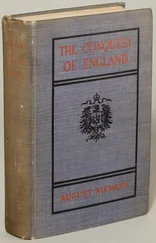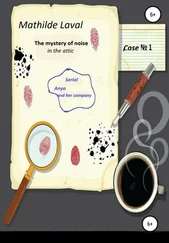The day was pushing dark now, and the rain had started. It gusted in on the south side of the house, mostly along the kitchen walls, commencing a clatter above her, the exhaust vent for the kitchen range. It thrummed a bright, uneven tattoo. Arie looked all around, trying to see it all through the eyes of a stranger, and found it believably awful. Without even glancing at her grandmother’s bedroom door, she went back through her former room, into the closet, and stepped onto the first shelf. Deep dust and the crispy carapaces of desiccated flies covered them, gritting under her fingers. It was a challenge getting over the lip of the hatch—harder by far now than it had been when she was fifty. Once up, she leaned head-down and swiped randomly at the filth on the shelves, getting rid of anything that resembled handprints. She fitted the hatch lid back into its space. This hatch, like the sky panel, had its own homemade bolt, and because it was more vulnerable from inside the house, she blocked it with her ‘sofa’: the bench seat from the rear of a car. Gods knew how it had ever ended up in the attic—probably something of Pop’s. Covered with hideous thick fabric, the car seat was a relic of steel from an era of automobile frenzy at least a hundred years in the past, when the combustion engine beat like the heart of the world, pumping forever on a supply of crude oil thought inexhaustible. The thing probably weighed in the neighborhood of a hundred pounds, and if someone from below managed first to find the secret opening and then to break through, the car seat might at least give Arie a head start to escape through the sky panel and onto the roof. She put her back to one side and pushed until the old bench seat sat squarely over the hatch.
At the table she lit two candles tonight, one for light and one for heart. She dropped onto the car seat, the worst of its holes stuffed with Pop’s clothes and covered with her old bedspread. The rain had picked up urgency and beat down on the old asphalt shingles. She was exhausted. “Not young as I once was,” she said to herself, and laughed. Her grandmother used to say that when she was in her middle eighties. “Not young as I once was, and not nearly old as I’m getting to be.”
Her brother William.
She’d heard that a fourteenth had been born to Mammy Delonda, but by that time Arie had been twenty-one and not much interested in yet another sibling, one among the herd of them. Arie had taken the vow, taken the marks of the vow, years before. Her parents’ continued antipathy to the bitter reality of life was no direct concern of Arie’s. It wasn’t the physical fact of this young brother appearing that she was caught on. Was it? No, not him. He’s a stranger. On his own path, like all men, she thought. No, her snag, the thing nettling her now, was hearing of Daddy Mack alive. So many dead, and Daddy Mack still walking the face of the planet. If ever there was an argument against the possibility of the terrible deity they’d kowtowed to, that was a feasible one.
She got off the sofa seat, struggling a bit from that low position. With the rain here in earnest, the parts of her that felt the damp most keenly muttered pain—knee, ankle, left index finger. The bang and flutter of the hood vent kept up a small, bracing racket that Arie liked. It was a thin metal sound from the past, when all was snug and yellow with lamplight inside, and all was gray, blowing wet outside.
Order, order, order. She began with the table; all-purpose work spot that it was, it tended to clutter. The bowl of green beans she’d picked earlier she placed next to the sofa, for stringing later. Her many candle stubs were scattered around and she hadn’t washed her bowl and spoon since using them…when? Two days ago. A stray carrot was here, too. She stowed it in her apron pocket along with various lighters and her folding knife. The candle ends and lengths went into their own bowl like fat crayons discarded by a distracted child. She dumped standing gray water out of her washbasin into the piss bucket and—a treat—refilled the basin with fresh water, even though she’d only used the old water twice. There was plenty of rain filling the jerry can on the roof, so she’d break her own rule of using the basin at least three times before dumping. She rinsed her face, grabbed a chunk of soap and scrubbed her hands. Finally, she cleaned the dishes, picking bits of dried oats off the spoon. Before drying the dishes and covering them with the towel, Arie wiped down the whole surface of the table and everything on it. The attic was constantly shedding itself everywhere, sending down a steady blanket of dust and cobwebs, dead spiders (or living ones), and crumbled bits of asphalt shingle and outside dirt. Her few clothes she shook out and refolded, and the same with her bedding and the cover of the old car seat.
“A 1950 Packard,” Pop used to say. “Hell of a car. A tank.” It had been up in the attic as long as Arie could remember. Every so often, Mammy Delonda had gotten a wild hair and brought Arie and her two older sisters, Mercy and Lulu, into town for a secret visit with Granny and Pop Merrit, who were her parents. Daddy Mack thought they were going to the co-op and spending the afternoon on Clam Beach. But they only stopped at the beach for a few minutes, just long enough to gather up little bits of ocean flotsam and get sand in their shoes. Then they’d pile back into the truck and drive into town to this house, the house their mother had grown up in.
Granny would get tears in her eyes and make a terrible fuss over them all, with a lot of extra hugs and kisses for Mammy Delonda. After a minute or two, Pop would give each of the children a dollar, and they’d walk two blocks to Pat’s Market for a treat. The unheard-of novelty of having money in hand was eclipsed entirely by the strangeness of being in a store all by themselves. The possibilities had seemed vast to them—shelves of candy, chips, cookies, the cold case with rows of sweetened drinks, and a freezer filled with ice cream bars. Choosing kept them busy for a good long time. Back at Granny and Pop’s, their mother would be sitting at the kitchen table with Granny, smoking a cigarette. Her big smile, conspiratorial. With the taste of chocolate in their mouths, there was no question that everyone’s secrets would be safe when they got back to God’s Land, when Daddy Mack said, “Well, Treasures? How was your road trip, what adventures?” They would tell him about going to the beach, would empty their pockets of stones and gull feathers and the desiccated claws of Dungeness crabs. He would laugh his enormous Daddy Mack laugh and say, “Good you drove back to God’s Land, after all that. You and your mammy, too!” Mammy Delonda would look sweetly up at him, and she’d have her little voice back, not like the calm, level voice she spoke with at Granny’s kitchen table. And when they went to bed, all of them at once—girls in the loft, boys on the living room floor, Mammy and Daddy in their curtained alcove—there would be the Sacrament of Life for ever so long, the restless thumping of the bed, finally Daddy Mack’s sacramental groan, followed moments later by their mingled post-coital benediction, a prayer asking the Lord for increase. And the Lord increased. The Lord was ever so generous with the giving out of babies.
The storm pounded the attic roof, rain like a hose turned on, pouring in great blowing sheets. Arie gathered up tools and weapons and spread them out on the floor, sitting cross-legged before them: short spear, extra spear tips, pocket knife, bowie knife, sling and sling ammo. Every three days she did this, usually before dark. Checked the knots on the sling and ensured the lacings were not frayed or nicked. Put the blades of the two knives to the whetstone. Double-checked the lashing on her short spear and the edges of the blade for cracks. There were no visible cracks, although she couldn’t be completely sure in this light. The stone was sound, fantastically thin on its cutting edge. It was a Daddy Mack original, given to her when she turned twelve. All the children were trained in the art of stone knapping, first by observing and mimicry, and then in earnest on their twelfth birthday. Daughters and sons each had their own rites of passage, but being allowed to knap stone for the protection or provision of the family was a universal. Arie had a half-dozen other blades for her short spear, and all of the others she had made herself.
Читать дальше












